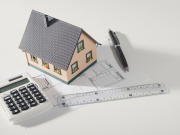In the bustling and ever-evolving real estate market of the Philippines, one question often arises: should you invest in new developments or opt for resale properties? Each option has unique benefits and potential drawbacks, and the choice largely depends on your needs, investment goals, and personal preferences.
New developments are freshly constructed properties that have never been lived in before. They offer modern designs and updated amenities, often with attractive pre-selling offers. On the other hand, resale properties are previously owned homes that are back on the market. These properties frequently have a rich history and established neighborhoods and can be more affordable than their brand-new counterparts.
With the help of HousingInteractive, this guide will delve into both options, providing an in-depth comparison to help you make an informed decision. From cost differences, lifestyle considerations, and market trends to value propositions, we will explore all critical aspects of new developments and resale properties in the Philippines.
I. Understanding New Developments
New developments, often referred to as pre-selling properties in the Philippines, are sold before construction. They are typically marketed by developers who offer potential buyers a glimpse into the future through detailed plans, architectural models, and digital presentations.
Investing in new developments comes with several benefits:
1. Modern design and features
These properties often come with the latest architectural designs, updated amenities, and eco-friendly features, ensuring you get a home that aligns with the latest trends.
2. Flexible Payment Schemes
Developers often offer flexible payment options, allowing you to pay in installments during construction.
3. Appreciation Potential
As the property nears completion, its market value tends to rise, offering potential capital gains for early investors.
However, there are also drawbacks to consider:
1. Long Wait Times
Since these properties are under construction, you might have to wait several months or years before moving in.
2. Risk of Delays or Cancellations
There’s always a risk that the project may face delays or even cancellations due to unforeseen circumstances.
3. Uncertainty about the Final Product
Despite the developer’s promises, there can be discrepancies between the promised design and the final product.
A notable example of a successful new development in the Philippines is the SMDC Residences around Diosdado Macapagal Blvd. This property offered modern design and amenities in the heart of the Mall of Asia Complex, Pasay City. It has seen significant appreciation since its launch, showcasing the potential benefits of investing in new developments.
II. Understanding Resale Properties
In the Philippines real estate market, resale properties are homes previously owned and lived in. They vary widely in age, style, and condition, from condos and townhouses to single-family homes and multi-unit properties.
Purchasing resale properties has advantages:
1. Immediate Availability
Resale homes are ready for immediate occupancy, making them ideal for buyers looking to move in quickly.
2. Established Communities
These properties are typically in well-established neighborhoods with mature amenities like schools, hospitals, and shopping centers nearby.
3. Room for Negotiation
Prices of resale properties are often negotiable, offering the potential for a better deal.
However, there are also some potential drawbacks:
1. Maintenance Costs
Older homes may require more repairs and maintenance, adding to the cost.
2. Outdated Features
Resale homes might have different amenities and design features than new developments offer.
3. Less Flexible Payment Options
Unlike new developments, resale properties generally require a larger upfront payment.
An example of a popular resale property in the Philippines is a condominium unit in The Fort, BGC. Despite being a few years old, its strategic location, established community, and competitive pricing make it an attractive option for many buyers, highlighting the appeal of resale properties.
III. Cost Comparison: New Developments vs. Resale Properties
Several factors come into play when comparing new developments and resale properties in the Philippines.
New Developments
These properties are often priced higher due to their modern design, updated features, and the promise of being the first occupant. However, developers usually offer flexible payment schemes and early bird discounts, initially making these properties more affordable. The overall cost can also increase over time as the property nears completion and values rise.
Resale Properties
Generally, resale properties have a lower upfront cost than new developments. However, they may come with additional fees such as repair, renovation, and maintenance expenses, especially if the property is older. The price of resale properties is also influenced by their location, age, and the state of the real estate market at the time of purchase.
Industry experts suggest that while new developments may seem more costly upfront, they can offer better long-term value due to their modern features and potential for appreciation. On the other hand, even commercial resale properties can provide immediate value and be more affordable, especially for first-time buyers or those with tight budgets.
IV. Lifestyle Considerations: New Developments vs. Resale Properties
Lifestyle preferences play a significant role in choosing between new and resale properties. Here’s how:
1. Modern Living
New developments could be perfect if you prefer modern architecture, updated amenities, and eco-friendly features. These properties often come with gyms, swimming pools, and community centers, catering to a lifestyle of comfort and convenience
2. Ready-to-move-in
Resale properties are your best bet if you’re looking for a home ready to move into immediately. They are ideal for those who need to relocate quickly or do not wish to wait out the construction period of a new development.
The location, amenities, and neighborhood can also significantly impact the decision-making process:
1. Location
In real estate, location is everything. The proximity to work, schools, hospitals, and other amenities is crucial in choosing a home. While new developments might be located in emerging areas, resale properties are often in established neighborhoods.
2. Amenities
The availability and quality of amenities such as gyms, parks, community centers, and swimming pools can be deciding factors. New developments often boast the latest facilities, while resale properties in older neighborhoods might offer more mature and established amenities.
3. Neighborhood
The character and vibe of the neighborhood can influence your decision. New developments often attract a similar demographic of residents, leading to a more homogenous community. On the other hand, resale properties in established neighborhoods can offer a more diverse community.
Lifestyle considerations are paramount when deciding between new developments and resale properties. It’s essential to consider your preferences, needs, and long-term plans before deciding.
V. Market Fluctuations and Their Impact
Understanding the real estate market dynamics is crucial to making informed decisions about property investments. Various factors, including economic conditions, demographic shifts, and interest rates, influence the market.
Market Trends and Property Value
Market trends can significantly impact the value of both new and resale properties. A solid real estate market, characterized by growing demand and rising prices, can increase the value of the latest developments as they often offer modern amenities and are located in emerging areas. However, in a slow market, buyers might have more negotiating power and could find better deals on resale properties, especially those in established neighborhoods.
Expert Opinions on Market Fluctuations
Experts opine that while market fluctuations are inevitable, understanding these dynamics can help investors navigate their complexities. For instance, property prices may decline during economic downturns, presenting potential buying opportunities. Conversely, during economic booms, rising property values might favor sellers.
VI. The Debate: Which Offers Better Value?
Analyzing the value proposition of both new developments and resale properties requires a comprehensive understanding of what each option offers and how it aligns with your needs and preferences.
Value Proposition of New Developments
These properties offer modern designs and updated amenities, often with warranties on appliances and structures. They are usually positioned in emerging locations and have the potential for higher appreciation rates.
Value Proposition of Resale Properties
Resale properties typically offer established neighborhoods, mature landscapes, and immediate occupancy. They can also provide opportunities for negotiation, potentially allowing buyers to purchase at below-market prices.
Critical Factors in Determining Value for Money:
1. Price
When deciding, it is essential to consider both the initial cost and the potential long-term return on investment.
2. Location
The value of a property can be significantly impacted by its proximity to amenities.
3. Condition of the Property
When considering resale homes, it’s essential to account for potential repair or renovation expenses contributing to the overall cost.
4. Future Growth
Consider this area’s tremendous potential for property value appreciation.
Expert Views and Studies:
Experts’ views on which type of property offers better value vary based on market conditions and individual circumstances. Some experts argue that new developments can provide better long-term value due to their modern features and potential for appreciation. Others suggest that resale properties can deliver immediate value and be more affordable, especially for those with tight budgets.
VII. Brief comparison: New Developments vs. Resale Properties
| Factor | New Developments | Resale Properties |
| Design & Amenities | Modern design and updated amenities. | The established design may require updates or renovations. |
| Location | Typically, it is in emerging locations with growth potential. | Usually in established neighborhoods with mature landscapes. |
| Occupancy | May have a waiting period before occupancy. | Immediate occupancy is typically possible. |
| Price Negotiation | There needs to be more room for price negotiation. | There is more room for price negotiation. |
| Future Value | Potential for Higher Appreciation Rates. | Dependent on market conditions and property upkeep. |
| Cost: The | initial cost can be higher but comes with warranties. | It may be more affordable but involve additional repairs or renovation costs. |
Remember, this is a general comparison, and actual circumstances may vary based on specific properties and market conditions.
Conclusion
Choosing between new developments and resale properties hinges on personal preferences, financial capabilities, and future goals. New developments offer modern amenities and potential growth, while resale properties provide established environments and immediate occupancy. Market conditions and expert opinions vary, making both options viable depending on individual circumstances. Ultimately, thorough research and an understanding personal needs will guide the best investment decision.

























